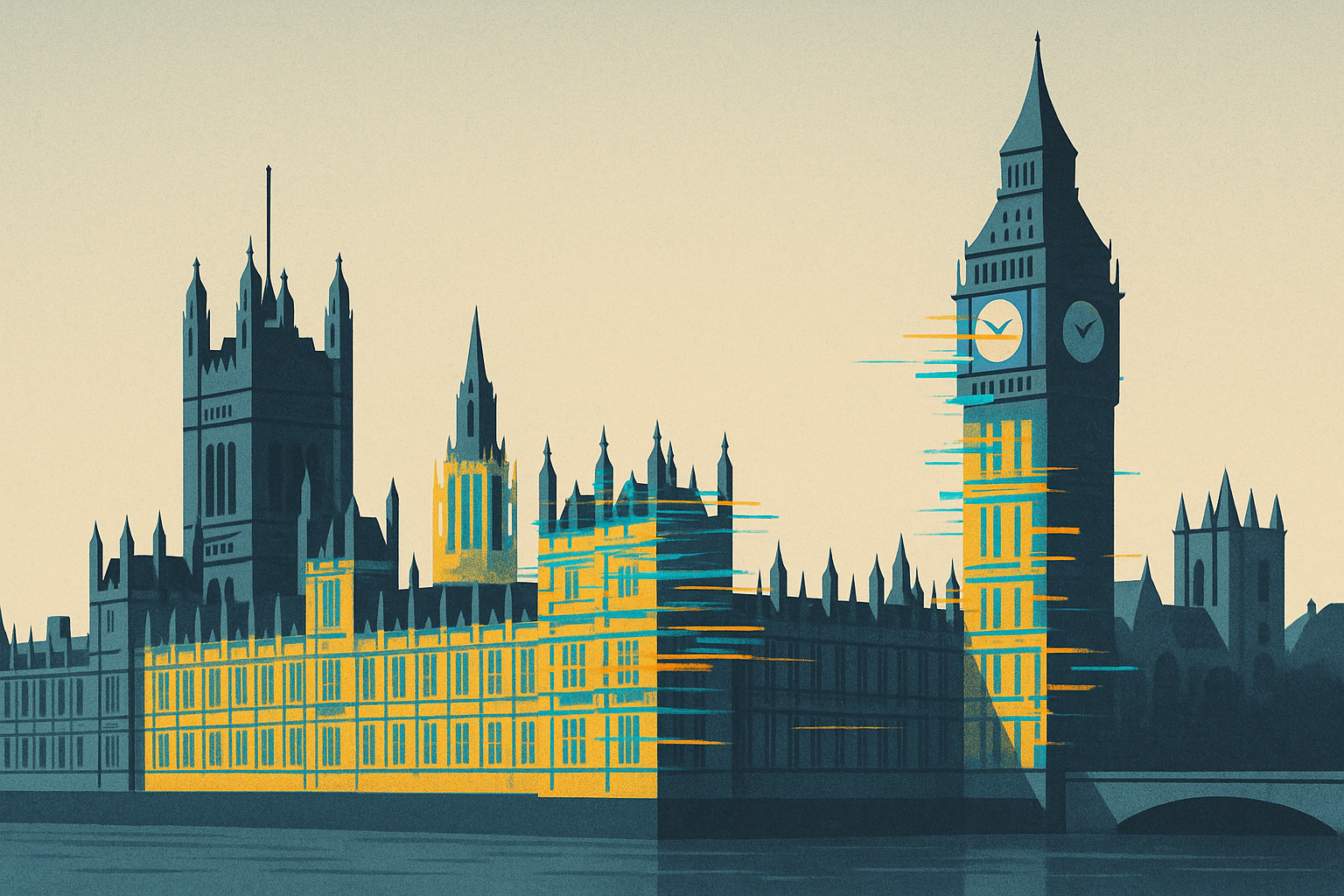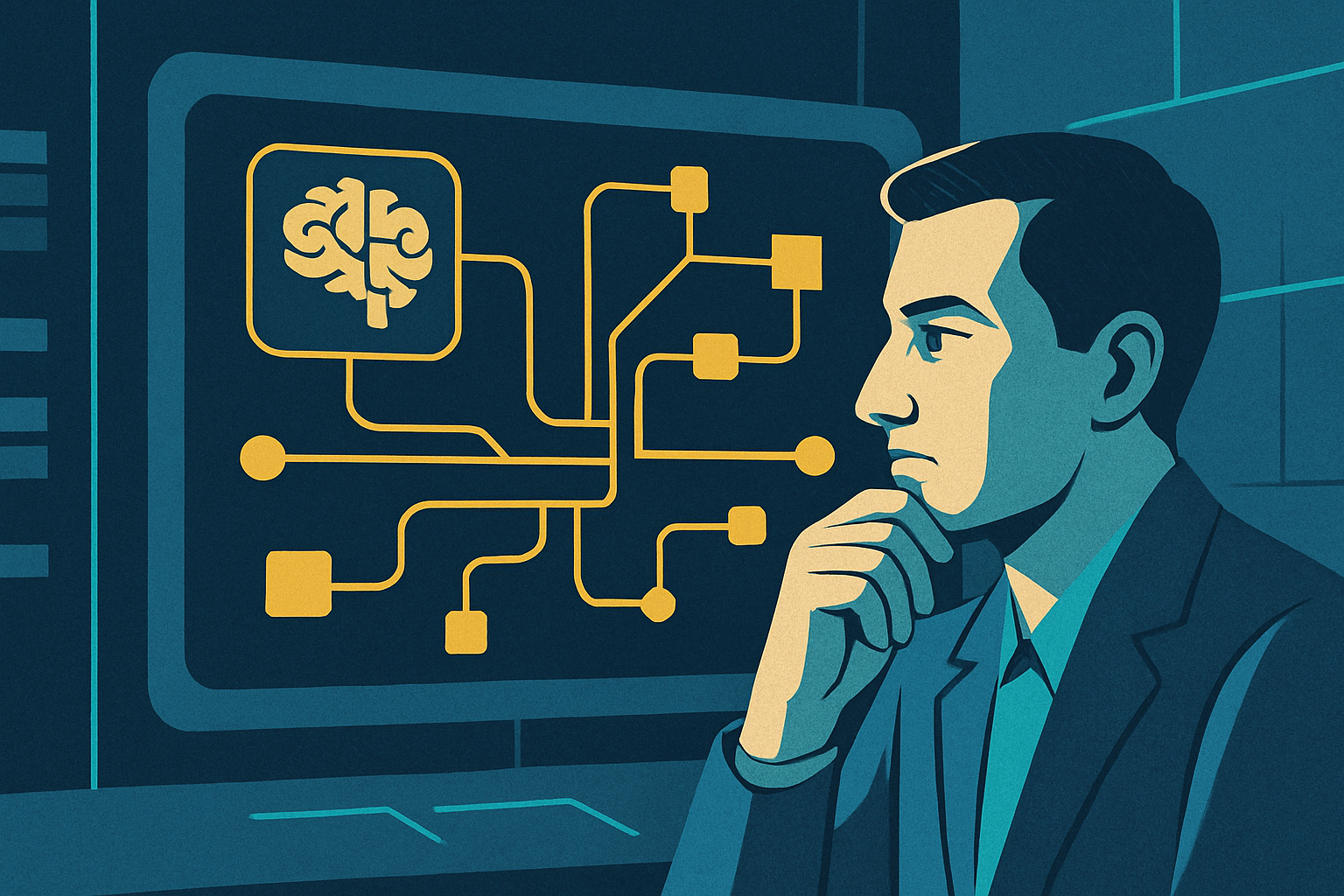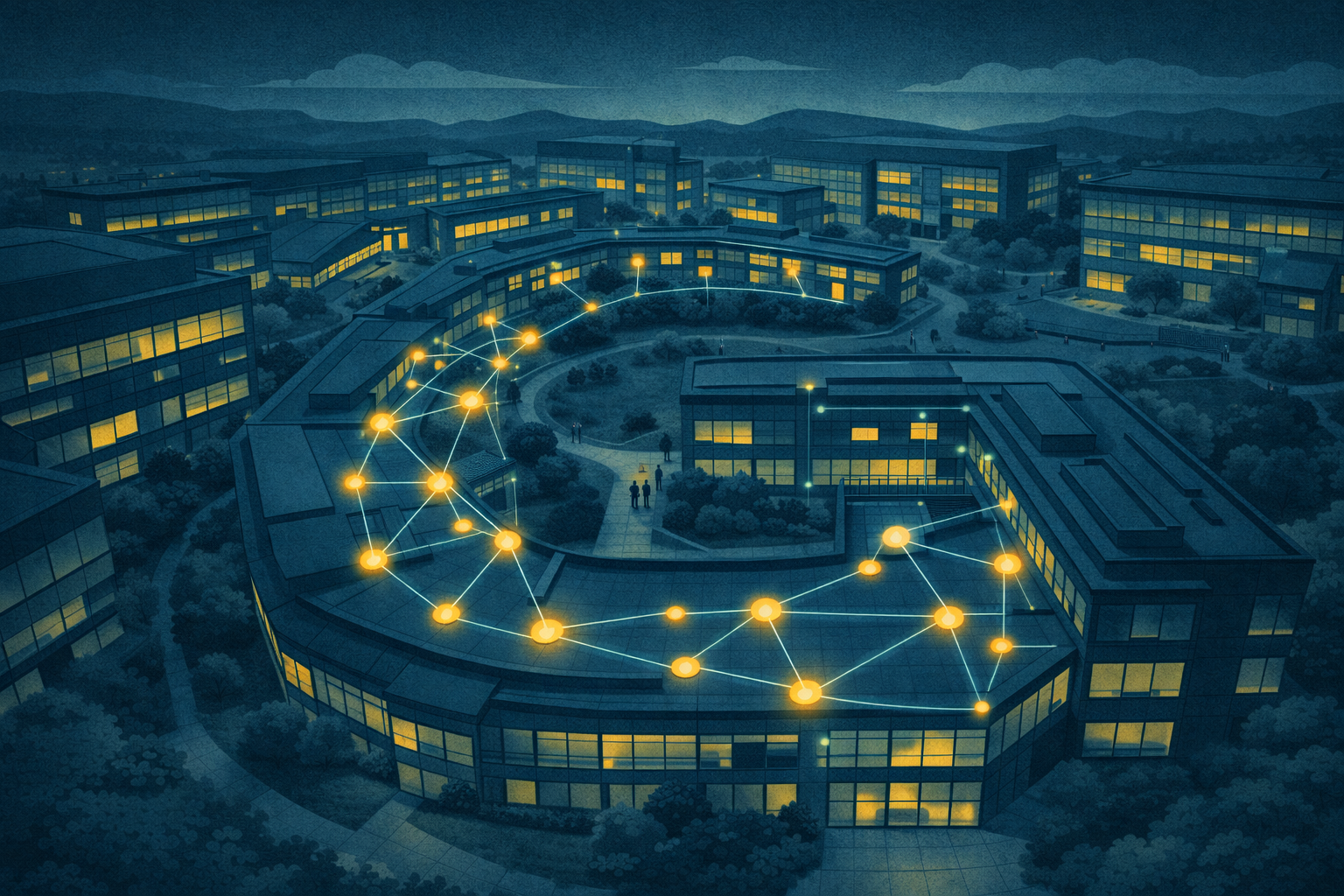It began in the thick, airless calm of Westminster, under the shadow of Brexit. In 2017, a young adviser named Leon Emirali found himself proposing a novel idea to Downing Street — a chatbot that could mimic the Prime Minister’s daily briefings, delivering smart-speaker updates on what was happening at the heart of government. “I tried to persuade the Conservatives to create a chatbot of then-PM Theresa May, to offer a bite-size conversational overview,” Emirali remembers. “It never happened, but the technical thought lingered for a while.” The machinery of government proved too slow, and the project quietly faded. But for Emirali, the frustration became a seed.
By mid-2024, the world had changed. Large language models were rewriting what AI could do, and Emirali, now a political adviser turned entrepreneur, decided to bring his old vision to life. The new platform would be called Nostrada.ai, named for the legendary seer — but its focus was not prophecy. Instead, it aimed to offer organisations a way to map, test, and forecast the behaviour of politicians in real time, building “digital twins” that tracked every speech, vote, tweet, and local news story of every MP in Parliament.
Political risk, once a niche concern for lobbyists and insurance underwriters, is now a $44 billion global market and growing fast. For businesses, real estate funds, and even embassies, AI-powered platforms are no longer optional. “Even slow-moving real-estate funds are buying in, hinting at mainstream demand,” notes a 2025 Deloitte survey, which found that 53% of listed property trusts now rely on AI-powered geopolitical dashboards. According to McKinsey, digital twin modelling can lift government programme efficiency by up to 30% — a figure that has captured the imagination of both public and private sector clients.
Building Nostrada.ai was as much an act of necessity as vision. Emirali’s early days were spent juggling consulting gigs to pay server costs, assembling a two-person team: one contractor scraping Hansard transcripts, another wiring an off-the-shelf language model into a barebones dialogue interface. “We bootstrapped server costs by consulting on the side,” Emirali says. The first real break came when a London public-affairs agency wanted to model all 650 MPs for a campaign — a project that led, weeks later, to the agency securing a mention in Parliament thanks to materials produced by Nostrada.ai. “That was when we knew we were onto something.”
The core of Nostrada.ai’s technology is its living, learning model of the UK Parliament. Every public artefact tied to an MP — speeches, committee questions, tweets, press cuttings — is fed into the platform, which converts text into a multi-dimensional fingerprint that maps policy position, rhetorical style, and behavioural patterns. Clients log in, select a simulated politician, and pose natural-language questions. The digital twin responds, linking each answer back to its source. Advanced users can run scenario analyses: what happens if a policy amendment is introduced, or if a major event shakes Westminster? The system predicts trajectories, highlights probability, and reveals hidden ripple effects. “We’ve now built a full suite of tools that make the time-intensive work of government affairs much easier, such as drafting lobbying letters or creating MP briefings,” Emirali says.
For Nostrada.ai’s clients, the impact is already tangible. Early adopters included UK public-affairs consultancies and embassies eager for an edge; soon, defence analysts arrived when foreign policy modules were added. One FTSE 100 manufacturer credits the platform’s France model for alerting them to an impending amendment on carbon border taxes — a move that let the firm hedge energy contracts in advance, sidestepping an immediate eight-figure cost spike. “The savings dwarfed their subscription outlay, validating our decision to expand beyond Westminster,” says Emirali.

Not all discoveries have been intuitive. “Backbench MPs exhibit stronger linguistic stability than Cabinet ministers,” Emirali notes. “Seniority doesn’t always mean predictability.” The system’s analytics also surfaced an unexpected pattern: constituency press releases — long dismissed by lobbyists as minor — can carry higher predictive power for rebellion risk than set-piece national speeches. “That finding runs contrary to the assumption that seniority equals stability.”
But Nostrada.ai’s rise has also brought new scrutiny. As AI-powered tools become fixtures in public affairs, regulators are moving to keep pace. The EU’s AI Act, effective August 2024, requires transparency for chatbots and deepfake detection, while the US Federal Election Commission has begun policing AI-generated campaign ads.
In the UK, a “pro-innovation” approach has left much to self-regulation, with firms like Nostrada expected to self-disclose use cases. Emirali’s answer is to make provenance a cornerstone: “We counter any whiff of misinformation by enforcing provenance links on every sentence so users can trace the origin. Models do not learn from private queries, which blocks feedback loops that could skew public perception. We also declined offers to create undisclosed clones for partisan campaigns.”
The competitive landscape is fierce. In the US, FiscalNote and Quorum dominate with bill-tracking and automated outreach tools; Europe’s Plural Policy predicts bill fates but doesn’t model personalities. Permutable AI delivers macro-level conflict sentiment for traders, and Palantir focuses on enterprise-scale digital twins — but without a legislative context. Nostrada.ai’s strength, Emirali believes, lies in the depth and specificity of its modelling. “Prediction is just the start,” he says. “The goal is to make political decision-making more transparent, more robust, and, ultimately, more human.”
External voices agree the impact is growing. The Guardian’s 2025 profile called the platform “a new AI model for every MP… already probed by Cabinet Office and foreign-embassy accounts,” while TechRound has positioned Nostrada.ai as “the first AI product aimed at government-relations professionals,” with plans to expand into US and EU markets. Its partnership with ITV’s flagship politics show Peston brought digital twins to a prime-time audience, and sponsorship of the SPA National Conference highlights its growing presence in the wider media ecosystem.
Yet the journey is far from over. “Consumer staples still treat political risk as a distant macro factor, when it’s actually a monthly cashflow variable,” Emirali warns. As global regulation tightens and the adoption of AI accelerates, Nostrada.ai is working on ever-more ambitious features: linking regional models so that a tariff tweak in Brussels can ripple through models in Westminster, Washington, and Canberra; building tools for MPs themselves to generate instant policy analysis; and simulating the behaviour of “hostile actors” such as authoritarian leaders, where reliable public data is scarce.
Despite its growing profile, Nostrada.ai remains privately held, with no formal public sector pilots disclosed as of mid-2025. For Emirali and his team, that simply means more room to build, experiment, and stay nimble. “It means stress-testing every strategic choice against a spread of plausible futures rather than chasing a single forecast. When a plan survives extremes, it usually handles the messy middle.”
As the boundaries between politics, technology, and business continue to blur, Nostrada.ai stands as a case study in how innovation can emerge from the blind spots and frustrations of the status quo. In a world where political shocks can reverberate through boardrooms, supply chains, and communities overnight, the ability to map and test the future may be the ultimate competitive advantage.




